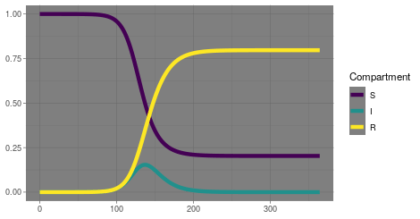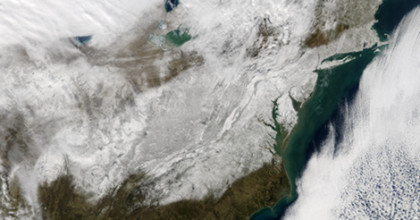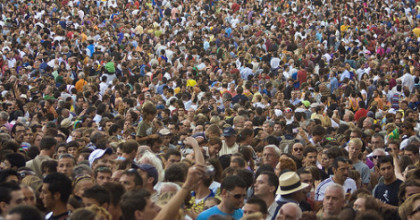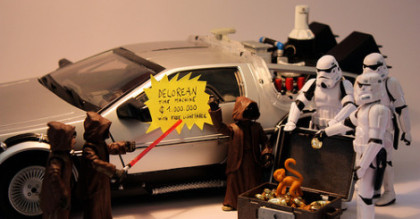Mathematical models of the spread of infectious diseases are a big reason I have the job I have now. When I first encountered them in grad school, a whole new world of scientific possibilities opened up. Suddenly there was an overlap between my math & computer skills and the biology which fascinated me. As it became apparent that my laboratory skills were lacking, it was a relief to know I could still contribute to improving public health with the skills I did have. Seeing the various applications and extensions of … [Read more...] about Science Corner: Understanding Superspreading
prediction
Science in Review: “Prediction is hard, especially about the future”
SS asks: What makes statistical modeling different from, say, new age methods of trying to predict the future? If you live on the east coast of the United States and paid any attention to the news in the past week, you couldn't get away from statistical models. There are US models & European models, all trying to answer the same questions: How much snow will fall, in what cities, and when? I live north of Pittsburgh, on the outer edge of this particular storm's path. One day the models said the storm was tracking … [Read more...] about Science in Review: “Prediction is hard, especially about the future”
Science Reader Question: The Human Touch
What makes statistical modeling different from, say, new age methods of trying to predict the future? Foretelling the birth of a child to a young woman used to be the domain of angels, but a few years ago the statistical models at Target started making those predictions too. When a teenager received diaper coupons in the mail, her father was outraged, then chagrined when it turned out Target knew more about his daughter than he did. … [Read more...] about Science Reader Question: The Human Touch
Science Reader Question: So You’d Like to Win a $1.5B Jackpot
SS asks: What makes statistical modeling different from, say, new age methods of trying to predict the future? When the multi-state lottery jackpots reach staggering 10 digit totals, someone in my office will organize a lottery pool. And because I'm the closest thing we have to a statistician, they hope I'll pick the numbers. The request is made with a dismissive chuckle, yet underlined with hope that I really can crack the lottery code. Unfortunately, expecting statistics to tell you winning numbers is asking the … [Read more...] about Science Reader Question: So You’d Like to Win a $1.5B Jackpot
Science Reader Question: Never Quote Me the Odds!
SS asks: What makes statistical modeling different from, say, new age methods of trying to predict the future? I suppose it might be somewhat unorthodox to answer any way but "Everything!", but the more I thought about this question, the more intriguing I found it. I'll get into the answer in the coming weeks. First I'd like to explore why there's more to this question than might be immediately apparent. … [Read more...] about Science Reader Question: Never Quote Me the Odds!




